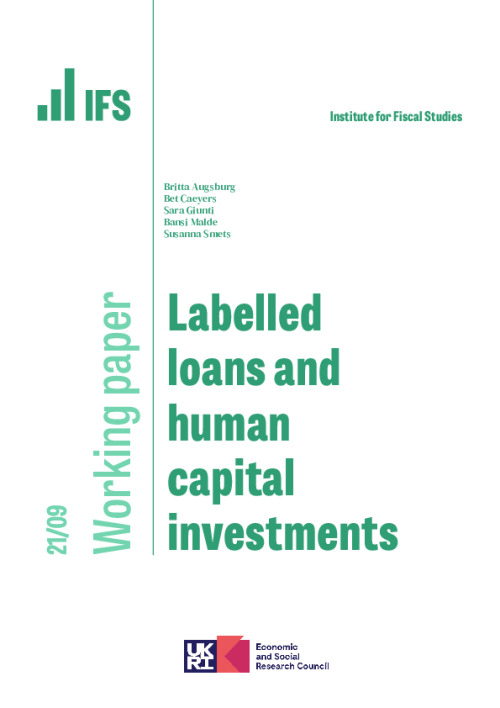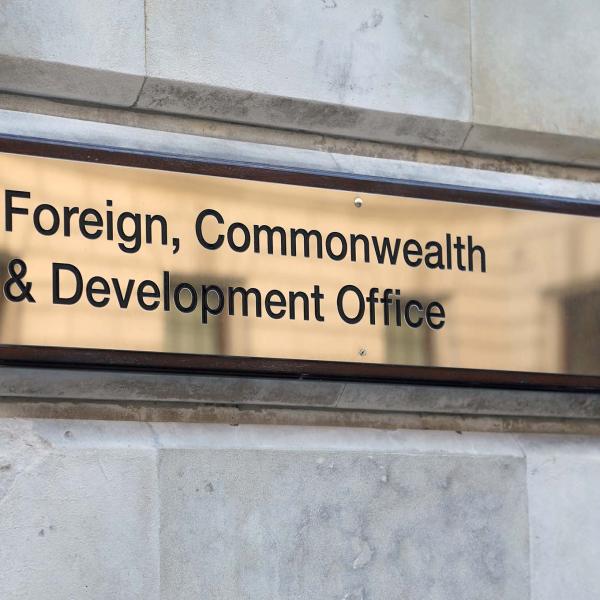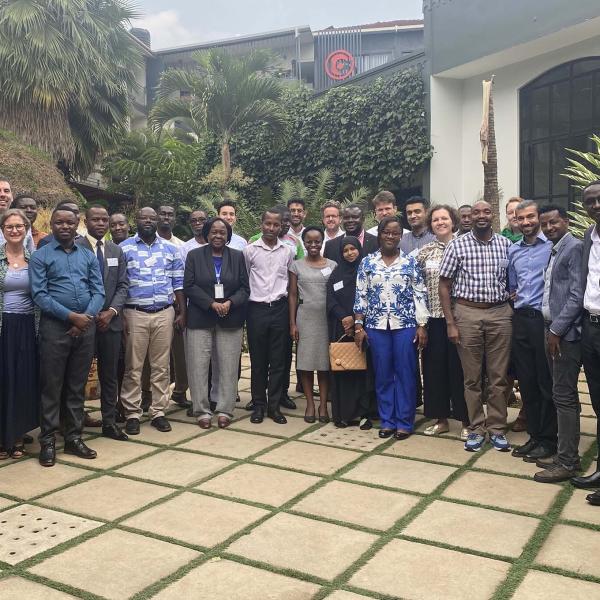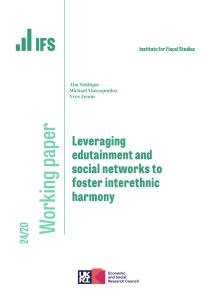Downloads

WP202109-Labelled-loans-and-human-capital-investments.pdf
PDF | 612.24 KB
Imperfect capital markets and commitment problems impede lumpy human capital investments. Labelled loans can alleviate both constraints, but little is known about their effectiveness in practice. We draw on a cluster randomized controlled trial in rural India to provide the first evidence that labelled microcredit is effective in increasing take-up of a lumpy human capital investment, a safe toilet. Testing predictions from a theoretical model provides novel evidence that loan labels influence household borrowing and investment decisions. Not all loans are used for sanitation investments, suggesting that loan labels offer a soft commitment incentive.
Authors

Research Fellow University of Kent
Bansi is a Research Fellow of the IFS, a Senior Lecturer of Economics at the University of Kent and also a Fellow at the Global Labor Organisation.

Associate Director
Britta is an IFS Associate Director, Associate Staff at the Department of Economics at the UC and Researcher at NIHR Obesity Policy Research Unit.

Research Associate Yale University, Stockholm University and FAIR/Norwegian School of Economics (NHH)
Bet is a Research Associate of the IFS who is an Adjunct Associate Professor at FAIR/Norwegian School of Economics (NHH).

Sara Giunti

Susanna Smets
Working Paper details
- DOI
- 10.1920/wp.ifs.2021.921
- Publisher
- Institute for Fiscal Studies
Suggested citation
Augsburg, B et al. (2021). Labelled loans and human capital investments. London: Institute for Fiscal Studies. Available at: https://ifs.org.uk/publications/labelled-loans-and-human-capital-investments-0 (accessed: 30 June 2024).
More from IFS
Understand this issue

What is the case for carbon taxes in developing countries?
Carbon pricing can be a powerful tool for reducing greenhouse gas emissions. What are the risks and opportunities from such policies in developing countries?
4 November 2021

Gender norms, violence and adolescent girls’ trajectories: Evidence from India
24 October 2022
Policy analysis

Three ways to improve the design of the UK’s overseas aid spending target
18 January 2024

Distributional analysis of Ghana’s tax system
18 December 2023

FCDO renews TaxDev funding for the next seven years
19 September 2023
Academic research

Targeting men, women or both to reduce child marriage
28 May 2024

Keeping the peace whilst getting your way: Information, persuasion and intimate partner violence
17 May 2024

Leveraging edutainment and social networks to foster interethnic harmony
10 May 2024